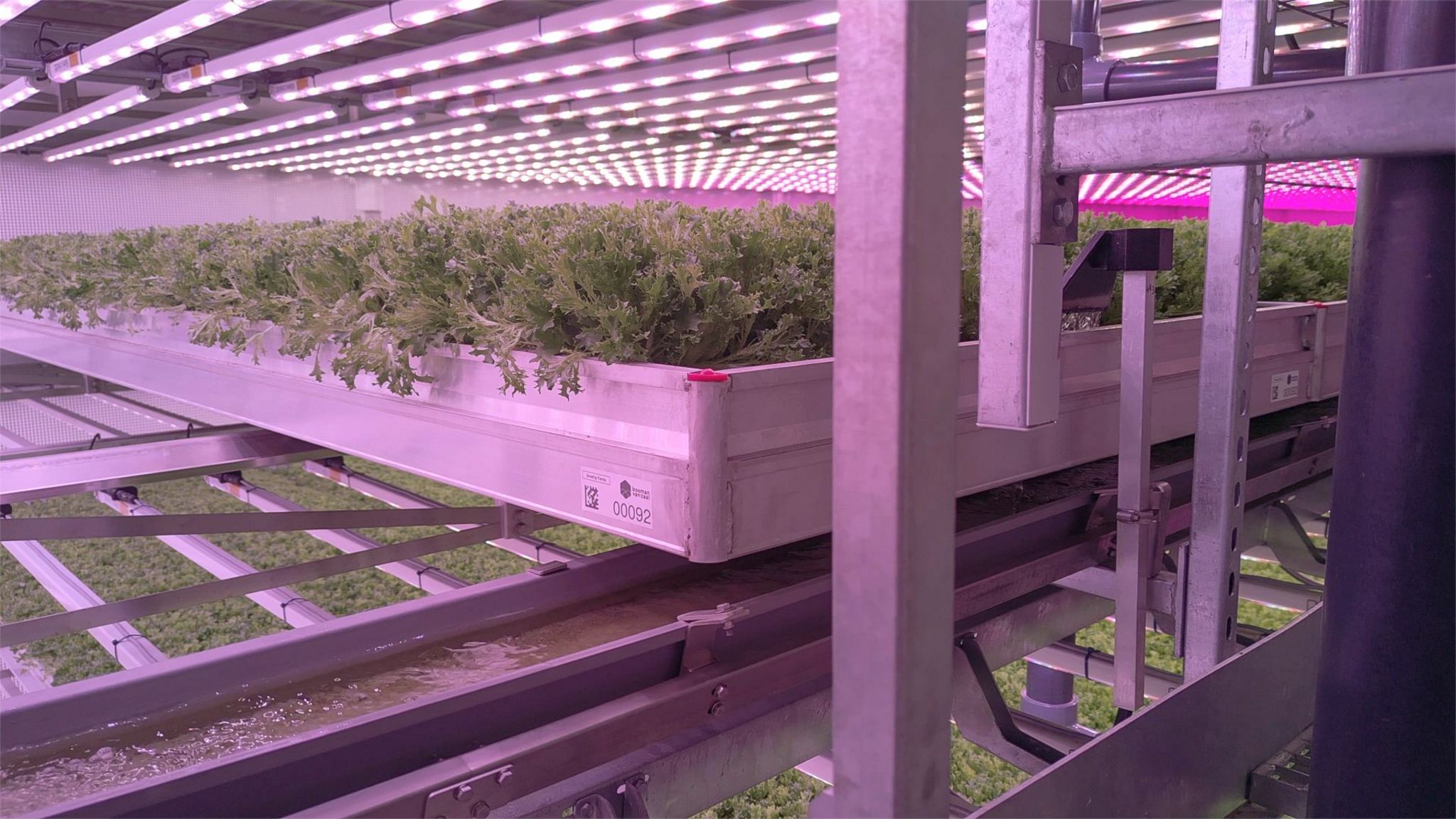Major impact on reducing wastewater for vertical farms
Published on by Water Network Research, Official research team of The Water Network in Case Studies
New technology which its designers hope will have a major impact on reducing wastewater has been trialled at a vertical farm.
Water treatment expert Salinity Solutions teamed up with indoor salad producer GrowUp Farms in Sandwich, Kent, for the 10 -day trial.
Wastewater from the growing process, as well as elsewhere on the site, was collected and re-circulated twice, using a unique pressure system.
Liam Burlace, co-founder of Salinity Solutions, said: “This allows us to reach much higher recoveries making more fresh water accessible."
 IMAGE SOURCE,GROWUP FARMSImage caption,
IMAGE SOURCE,GROWUP FARMSImage caption,
At GrowUp Farms, crops are grown in layers under special LED lights
The standard technology used in the industry is called reverse osmosis, in which water is purified by pumping it through a semi-permeable membrane.
Salinity Solutions has developed a way of re-circulating the water, to treat it twice in an energy-efficient way.
Mr Burlace said: “The aim here is to treat water better, so we want to extract as much fresh water as possible, whilst minimising the energy consumption of the system.”
The GrowUp Farms’ Pepperness site spans just five acres in Sandwich, but has the equivalent of 1,000 acres of growing space in a controlled environment, powered by renewable energy.
Salad crops for supermarkets are grown in fertilised water, rather than soil.
GrowUp Farms says the ground-breaking batch reverse osmosis technology - the first in the world to be manufactured commercially - could have a major impact on reducing wastewater, not only in the food sector but in many other sectors around the world, helping to solve the emerging global water crisis.
In the trial at the Sandwich site, rain water, water used for cleaning and “old” irrigation water were recycled.
Taxonomy
- Agriculture
- Vertical Farming
- Sustainable Agriculture
- Agriculture